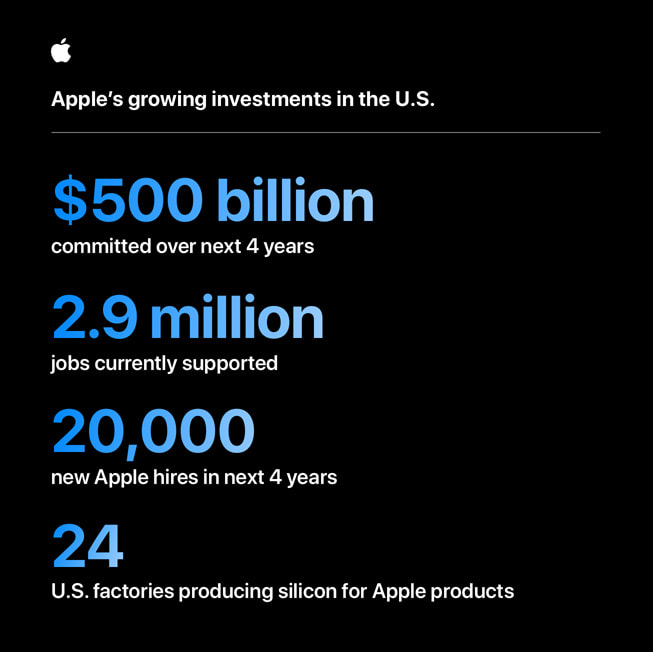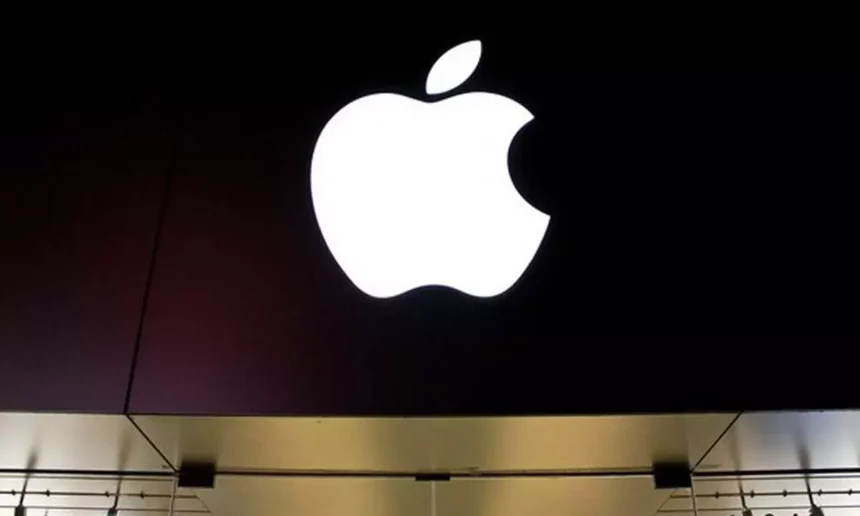Apple is making a massive move to counter the growing pressure of U.S. tariffs on foreign-made chips. The tech giant has announced a $500 billion investment into U.S. operations over the next four years. This initiative covers everything from expanding domestic chip production to building a new server manufacturing facility in Houston, Texas. With tariffs on foreign-made chips expected to reach 25%, Apple is taking a strategic approach to solidify its supply chain, support cloud services, and create thousands of jobs in the U.S.
What’s Happening & Why This Matters
Apple’s Strategic Investment in the U.S.
The decision follows a high-profile discussion between Apple CEO Tim Cook and former U.S. President Donald Trump, where the company’s future manufacturing strategy was reportedly discussed. As of February 4, the U.S. government imposed a 10% tariff on Chinese-manufactured goods, with an expected increase to 25% on semiconductor components. Rather than absorbing the additional costs or passing them on to consumers, Apple is doubling down on domestic production to mitigate the impact.
Apple’s $500 billion pledge is designed to bolster multiple aspects of its operations. A significant portion of this investment will go toward expanding Apple’s chip manufacturing capabilities in Arizona, where the company has partnered with TSMC’s Fab 21 facility. This facility, which started mass production last month, is expected to play a crucial role in Apple’s supply chain, ensuring the production of essential silicon components.
In addition to the Arizona expansion, Apple is constructing a 250,000-square-foot server manufacturing facility in Houston, Texas. This site will focus on producing hardware for Apple’s Private Cloud Compute service, which supports Apple Intelligence and other cloud-based functionalities. The facility is expected to be fully operational by 2026.
Beyond chip and server manufacturing, Apple is expanding data centers in North Carolina, Iowa, Oregon, and Nevada. These expansions will help Apple meet the increasing demands of cloud computing and artificial intelligence. The company is also launching the Apple Manufacturing Academy in Detroit, Michigan. This academy will train small and medium-sized businesses on AI-driven manufacturing and innovative production techniques.
Job Creation and U.S. Economic Growth

Apple’s investment isn’t just about infrastructure—it’s also about people. The company plans to create 20,000 jobs in high-skilled sectors, including silicon engineering, artificial intelligence, software development, and machine learning. This move aligns with Apple’s continued push to expand its research and development footprint in the U.S. and support domestic tech talent.
Apple is doubling its U.S. Advanced Manufacturing Fund from $5 billion to $10 billion to accelerate job growth further. This fund, created to support domestic manufacturing projects, will now provide additional resources for research, job training, and new facility construction.
Shifting Production Away From China
Apple’s increasing reliance on domestic manufacturing signals a shift away from China, where much of its production has been concentrated for years. The Houston facility is part of an effort to move server production away from Chinese manufacturers. Meanwhile, Apple’s partnership with Foxconn will ensure a smooth transition for U.S.-based operations. While new-generation M-series chips will still be manufactured in Taiwan, Apple is shifting some older chip production to its Arizona facilities.
Geopolitical uncertainty, trade disputes, and the desire for greater supply chain security largely drive this production strategy. With escalating tensions between the U.S. and China, Apple’s move to bring more of its manufacturing operations home ensures stability in its production process.
A History of Big Pledges
Apple’s $500 billion commitment isn’t its first major investment in the U.S. economy. In 2018, under the first Trump administration, the company pledged $350 billion to domestic expansion, which included $38 billion in tax contributions, $30 billion in capital expenditures, and the creation of 20,000 jobs. This latest initiative builds on that foundation, reinforcing Apple’s long-term commitment to American manufacturing and technological innovation.
Tim Cook spoke on the investment, stating:
“We are bullish on the future of American innovation and proud to build on our long-standing U.S. investments with this $500 billion commitment.”
TF Summary: What’s Next
Apple’s aggressive $500 billion investment plan directly responds to increasing tariffs on foreign-made chips. By expanding chip production, increasing data center capabilities, and boosting U.S.-based manufacturing, Apple is setting up its supply chain for long-term success. However, the biggest question remains: Will this move fully offset the potential cost increases caused by tariffs, or should consumers prepare for higher prices on Apple products?
— Text-to-Speech (TTS) provided by gspeech


